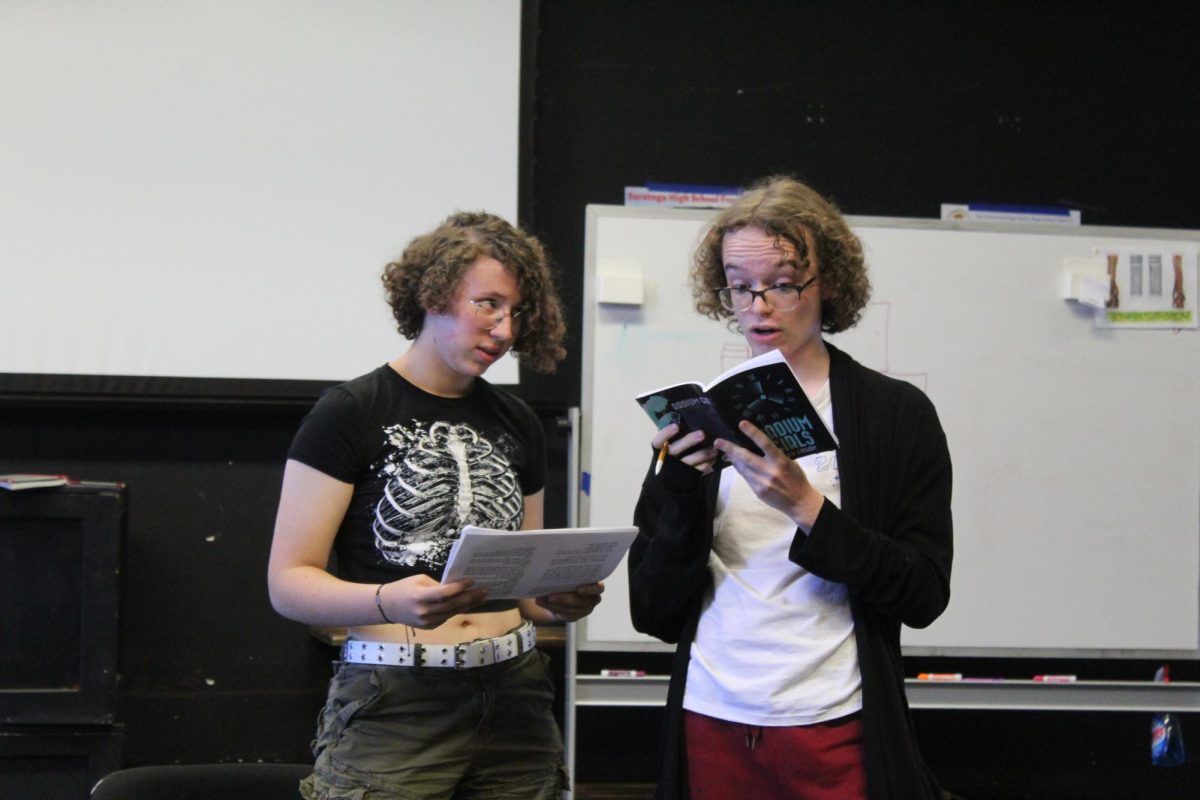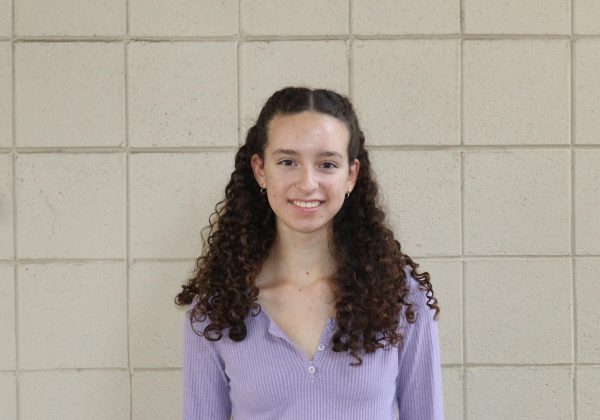This year’s fall play, running Nov. 8-10 and Nov. 15-16, combines a highly charged story based on real-life events with themes of social justice and female empowerment.
The play, “Radium Girls, ” is set in the 1920s in Orange, New Jersey, and follows a group of girls who work at a radium plant, painting glow-in-the-dark watches with radium-based paint for World War I soldiers. After a few years, they start suffering radiation poisoning, and their lives slowly begin to deteriorate.
“‘Radium Girls’ is a story of hardship for working class women, and those kinds of stories don’t get told very often,” senior stage manager Chloe Mantle said. “We see, throughout the show, the exploitation of these girls and their struggles not being taken for what they truly are. Being able to give a voice to these stories is certainly a privilege and I’m excited to be able to work very hard to see this show come to life.”
The play spotlights the life of Grace Fryer, one of the girls in the U.S. Radium Corporation who began working when she was just 15. Five years into her employment, her life falls apart: Her friend Irene Rudolph — played by sophomore Evangelina Stepanchenko — passes away. Irene’s death is a result of a condition called phossy jaw, rotting of the jaw caused by phosphorus. Grace and her friend Kathryn Schaub, played by junior Nila Venkataratnam, decide to search for the cause of her condition.
Shortly after, Grace and her co-workers start experiencing what first appears to be a harmless toothache, but, after they discover doctored reports, is pain indicative of their jaws rotting away from the radium. The director of the plant, a part played by senior Ryan Backhus, refuses to take responsibility for the many more girls who also die, so Grace starts the movement to fight for justice.
Senior Kat Aldrete plays Grace Fryer in “Radium Girls” and also serves as assistant director. In learning the role of Grace, Aldrete, who uses they/them pronouns, developed great admiration for the character, describing her as “sweet and gentle,” yet “very strong” when she fights for justice for all of the girls.
Aldrete added they believe the morals and conflicts illustrated in the show are relevant to today’s societal issues of corporate and legal corruption: “Some people truly will do anything for financial gain, and when that truth still affects the world so much today, it’s important to encourage people to fight for justice against those [perpetrators],” they said.
A typical blocking rehearsal begins with a run-through of a specific scene, with occasional interruptions and coaching from drama director Benjamin Brotzman. The 26-member cast often takes time to discuss specific movements and interactions between characters, as well as the emotional aspects of a scene.
Due to the play being based on real-life events, the actors emphasize that it is extremely crucial they understand the importance and weight of their performance. With opening night just under five weeks away, the production is currently touching up scenes. “So far, the biggest challenge has been accurately portraying the story of the play,” Aldrete said. “It’s very emotionally charged, and more of a ‘show-don’t-tell’ production. The messages are very implicit, and it’s our job to portray them so the audience easily understands. So far, though, I think we’re doing a great job.”


























